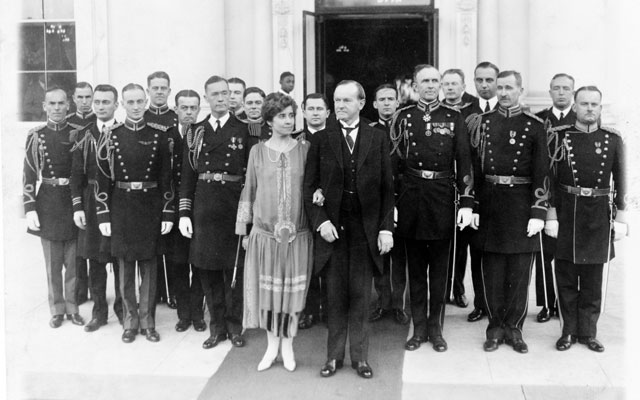Amity Shlaes will be speaking about her new book Coolidge at Heritage tomorrow. It’s a great opportunity to learn why, when it comes to government, bigger isn’t better.
Less than a century ago, the United States enjoyed an economic boom under the leadership of a quiet, restrained, and often forgotten American. Calvin Coolidge valued limited government and based his action (or more often inaction) on his commitment to personal responsibility, frugality, and honesty.
He vetoed 50 pieces of legislation during his presidency and cut back federal spending so much that the budget was smaller in 1929 than it had been in 1924. His moderation in all matters led to budget surpluses and renewed Americans’ respect for their government.
“We can not continue these brilliant successes in the future, unless we continue to learn from the past,” Coolidge cautioned the nation amid a time of comfortable prosperity. “We must frequently take our bearings from these fixed stars of our political firmament if we expect to hold a true course.”
Recent Presidents have too often turned to massive spending in failed attempts to stimulate the economy. Congress has been happy to go along, composing big legislative projects that, too often, nobody has read or understands.
Contrast that with Coolidge and his application of our founding principles. Heritage’s distinguished fellow Edwin Meese writes, “There exists between the people and limited government a vast social space in which men and women, in their individual and corporate capacities, may exercise their self-governing liberty.”
When it came to “consent of the governed,” Coolidge placed his trust in individual citizens, businesses, and local governments to create wealth and well-being. He recognized the danger of responding to all problems with bigger government.
Elena Segarra is currently a member of the Young Leaders Program at The Heritage Foundation. For more information on interning at Heritage, please visit: http://www.heritage.org/about/departments/ylp.cfm.





















